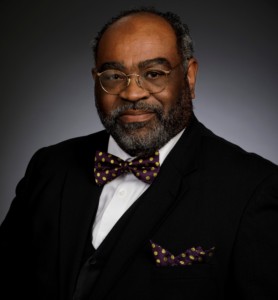PRAIRIE VIEW, Texas (February 27, 2020) – “No race that has anything to contribute to the markets of the world is long in any degree ostracized.”
Booker T. Washington spoke these words in 1895. Thirty years after the end of the Civil War, and thirty years after the so-called emancipation of black slaves. In the immediate aftermath of the Civil War, many in our so-called democracy refused to accept the legitimacy of black freedom. We know the sad history of Black Codes and Jim Crow segregation. By the time Washington addressed his Atlanta audience, racial segregation was a part of life, not just in the South, but throughout the country.
The onset of WWI temporarily hid racial animosities. Even WEB Dubois, that scholar and activist that once publicly chided Booker T. Washington for taking a moderate stance on race, asked the black community to “close ranks” and protect democracy from German tyranny. But what the returning black servicemen found when they returned home was not ticker-tape parades and celebrations, but the noose. History remembers the years following WWI as those of unbelievable violence committed against the black community.
Within a few years, Carter G. Woodson initiated Negro History Week to commemorate the achievements of blacks to this nation. Why? So American society would appreciate the contributions made by the black community in hopes of finally being recognized as equal citizens. Nearly 100 years later, we now celebrate Black History Month. But, the objective is still the same: identifying and celebrating the contributions of African Americans in hopes of finally being acknowledged as equal citizens. The uncomfortable truth of Black History Month is the fact that blacks are still trying to prove we have something to contribute to “the markets of the world” because the Founding Fathers never intended to give citizenship the descendants of Africans.
History illustrates the controversy surrounding the first days of freedoms in 1865. Most of the white community feared the newly emancipated slaves would take their rung on society’s ladder. The very thought of being less than a black person was unbearable. If the traitorous Confederacy had any political fears after Abraham Lincoln’s death, Andrew Johnson quickly put them at ease. His actions signaled to the nation that while slavery might be over, and the former slaves might be citizens, blacks in this country were not equal to whites.
Even though blacks were now “citizens,” the remainder of the nineteenth century was spent proving citizenship was warranted. The history of Jim Crow violence has been well documented and I understand this may be troubling for some. After all, the discussion of race tends to make some whites (and blacks) squirm. Don’t believe me? Just mention slavery, reparations, or even OJ Simpson, and watch what happens.
Even after wearing the uniform defending the very democracy that stood idly by as hundreds of black bodies hung from trees, the African American community continued to make American society better. Woodson wanted the world to know this. But he knew some only saw skin color and not intellect. So his initial celebratory week sought to prove that skin color was not a predictor of productivity and that the rights and privileges of this country should be acknowledged by all.
So, as we stand in the third decade of the twenty-first century and the celebration of African American achievements, I pray the new millennial generation will recognize and appreciate the accomplishments of those who came before. Washington was right. Any people that contribute to the markets of the world are accepted. For four-hundred years, African Americans have demonstrated a commitment to democracy and proven that the descendants of those brought to this land in chains are worthy to be counted among those when Thomas Jefferson declared:
“All men are created equal, that they are endowed by their Creator with certain unalienable rights, that among these are Life, Liberty, and the pursuit of Happiness.”
Ronald E. Goodwin, Ph.D., is the history program coordinator at Prairie View A&M University.

